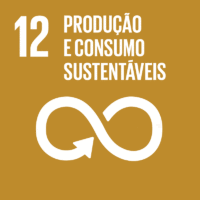Ciência_Iscte
Publicações
Descrição Detalhada da Publicação
Designing integrated biorefineries supply chain: combining stochastic programming models with scenario reduction methods
27th European Symposium on Computer Aided Process Engineering – ESCAPE 27
Ano (publicação definitiva)
2017
Língua
Inglês
País
Espanha
Mais Informação
Web of Science®
Scopus
Google Scholar
Esta publicação não está indexada no Overton
Abstract/Resumo
This paper addresses the design and planning of integrated biorefineries supply chain under uncertainty. A two-stage stochastic mixed integer linear programming (MILP) model is proposed considering the presence of uncertainty in the residual lignocellulosic biomass availability and technology conversion factors. Nevertheless, when the scenario tree approach is applied to a large real world case study, it generates a computationally complex problem to solve. To address this challenge the present paper proposes the improvement of the scenario tree approach through the use of two scenario reduction methods. The results illustrate the impact of the uncertain parameters over the network configuration of a real case when compared with the deterministic solution. Both scenario reduction methods appear promising and should be further explored when solving large scenario trees problems.
Agradecimentos/Acknowledgements
--
Palavras-chave
Supply chain design,MILP model,Integrated biorefinery,Stochastic programming,Scenario reduction methods
Classificação Fields of Science and Technology
- Economia e Gestão - Ciências Sociais
Contribuições para os Objetivos do Desenvolvimento Sustentável das Nações Unidas
Com o objetivo de aumentar a investigação direcionada para o cumprimento dos Objetivos do Desenvolvimento Sustentável para 2030 das Nações Unidas, é disponibilizada no Ciência_Iscte a possibilidade de associação, quando aplicável, dos artigos científicos aos Objetivos do Desenvolvimento Sustentável. Estes são os Objetivos do Desenvolvimento Sustentável identificados pelo(s) autor(es) para esta publicação. Para uma informação detalhada dos Objetivos do Desenvolvimento Sustentável, clique aqui.

 English
English




